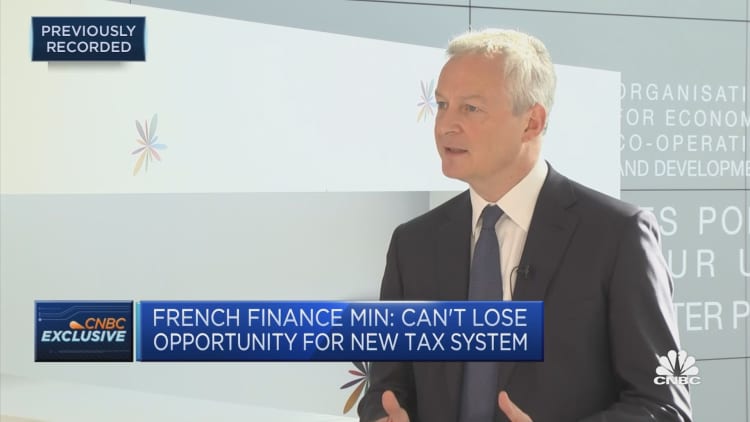Ireland has decided to sign up to a global deal that will push its corporate tax rate to 15%, marking a huge shift in its policy.
The G-7 and G-20 nations agreed earlier this summer to join forces to tackle tax evasion and harmonize rules across the globe. The plan, if implemented, would force multinationals to pay tax where they operate — not just where they have their headquarters — and would impose a minimum corporate rate of 15%.
The Republic of Ireland has one of the most attractive rates for corporations in the world at 12.5% and had, until now, refused to join the plan. Different Irish governments had fiercely defended the low rate, arguing it was a tool to attract businesses to a small economy.
On Thursday evening, Irish broadcaster RTE reported that the Cabinet had approved an increase from 12.5% to 15% in corporation tax for companies with turnover in excess of 750 million euros. The news was later confirmed by Ireland's Finance Minister, Paschal Donohoe.
"In joining this agreement, we must remember that there are 140 countries involved in this process and many have had to make compromises," Donohoe said, according to RTE.

"But I also believe that the agreement government has agreed to sign up to today is balanced and represents a fair compromise reflecting the interests and input of the many countries involved in the negotiations."
The Irish Department of Finance estimated that joining this global deal would reduce the country's tax take by 2 billion euros ($2.3 billion) a year, according to RTE. In addition, an opinion poll for The Irish Times showed that the majority of voters in Ireland believed the government should not modify its policy now.
However, Ireland's change of heart followed a revised text. The initial deal mentioned a minimum corporate tax rate of "at least 15%," but this has been updated to just 15% — signaling that this rate will not be pushed up at a later date. Ireland was also given assurances that it could keep the lower rate for smaller firms located in the country.
Compromise
Speaking to CNBC Wednesday, Péter Szijjártó, minister of foreign affairs and trade for Hungary, said that initial talks mentioned a corporate tax rate of 21%, which is far from the country's current rate of 9%. So the new level of 15% is somewhere in the middle, he said.
Hungary has yet to approve the global tax deal. However, the minister said Budapest would be keener to join if a 10-year implementation period were to be agreed on.

Meanwhile, France's minister of finance, Bruno Le Maire, a vocal supporter of the global tax deal, told CNBC Wednesday that a global tax deal was "one millimeter away" from being reached.
"The key point is to have an agreement being adopted, no later than the end of this month, on the new international taxation system.," he said in Paris.
"We could either next week during the Washington meetings, or at the G-20 meeting in Rome at the end of October, sign the final agreement under the international taxation system," he added.


